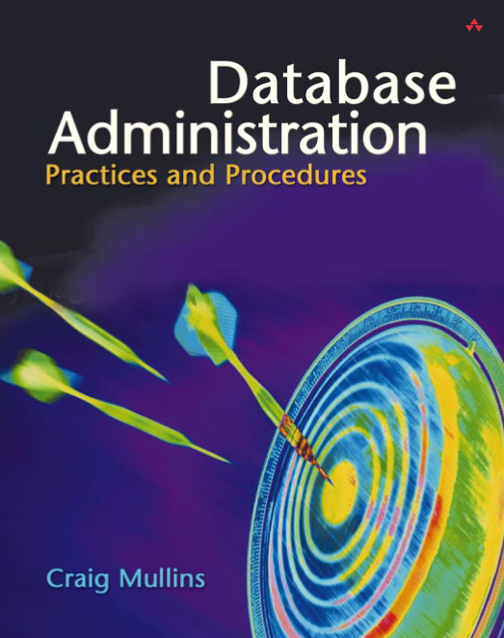 Craig S. Mullins Craig S. MullinsDBA: Practices & Procedures Page | |

Order this book at Barnes & Noble Review the Table of Contents for this book here Accolades for Craig's new DBA book Read a Recent Review of Craig's Book Read Another Recent Review of Craig's Book |
Database
Administration: Practices & Procedures by Craig S. Mullins This book provides the industry’s first non-product based description of database administration techniques and practices. The book defines the job of DBA and what is required of a DBA in clear, easy-to-understand language. The book can be used:
Modern application systems deploy databases to store information like names, addresses, account balances, etc. This information can be accessed and manipulated by application programs to perform business processes (like payroll processing, sales processing, and customer billing). Every DBMS requires database administration to ensure efficient and effective usage of databases by applications. This means that every user of Oracle, Microsoft SQL Server, DB2, Informix, Sybase, MySQL, Teradata, PostgreSQL, Ingres and any other popular DBMS will benefit from the information in this book. Many
organizations have multiple of these products and will benefit from a
consolidated view of DBA that does not focus on the internals and nuances of
each particular DBMS product. Such a view is presented in this text. Every
organization that deploys databases using a DBMS needs to understand the
concepts outlined in this book. Many small to medium organizations attempt to
implement DBMS products without DBA. This book explains the practice of DBA
and can be used to educate these organizations as to the necessity of DBA in
order for DBMS implementation to succeed. Other organizations implement only
subsets of the DBA practices that are covered in this book. With a thorough
reading of Database Administration:
Practices and Procedures, it will become quite clear that a comprehensive
approach to DBA is required. This book examines and explains each of the
components that comprise the discipline of database administration. As
technology advances new IT techniques emerge that impact the discipline of DBA.
Two such areas are Internet-enabled database access and storing procedural
logic in the DBMS in the form of triggers, user-defined functions, and stored
procedures. Because the impact of these newer technologies and techniques on
the role of the DBA is examined in this book, even seasoned database
professionals will find the book useful. Indeed, the book will be helpful for
any and all of the following folks:
Because
this book covers heterogeneous database administration without focusing on
just one DBMS, it can be used by organizations to set up a DBA function when
more than one DBMS product is being used. This is particularly important
because Gartner Group, the industry analyst firm, estimates that most medium
to large organizations have from 3 to 10 different DBMS products in use that
require administration. The single-DBMS shop is a rarity these days. Additionally,
the DBA job is currently very hot, with DBAs demanding and obtaining very high
salaries. As such, many
technicians aspire to become DBAs and this book will help them to do just
that. If you are an IT professional with interest in becoming a DBA, this book
will help you to achieve that objective. Other books about database administration are available, but they approach the subject from the perspective of a single DBMS. Many of these books are quite good. I wrote one myself for DB2 (click here for additional information). This book is not intended to replace such books, but to augment these books with an independent treatment of database administration tasks.
© 2007, 2004 Craig S. Mullins, All Rights Reserved.
|